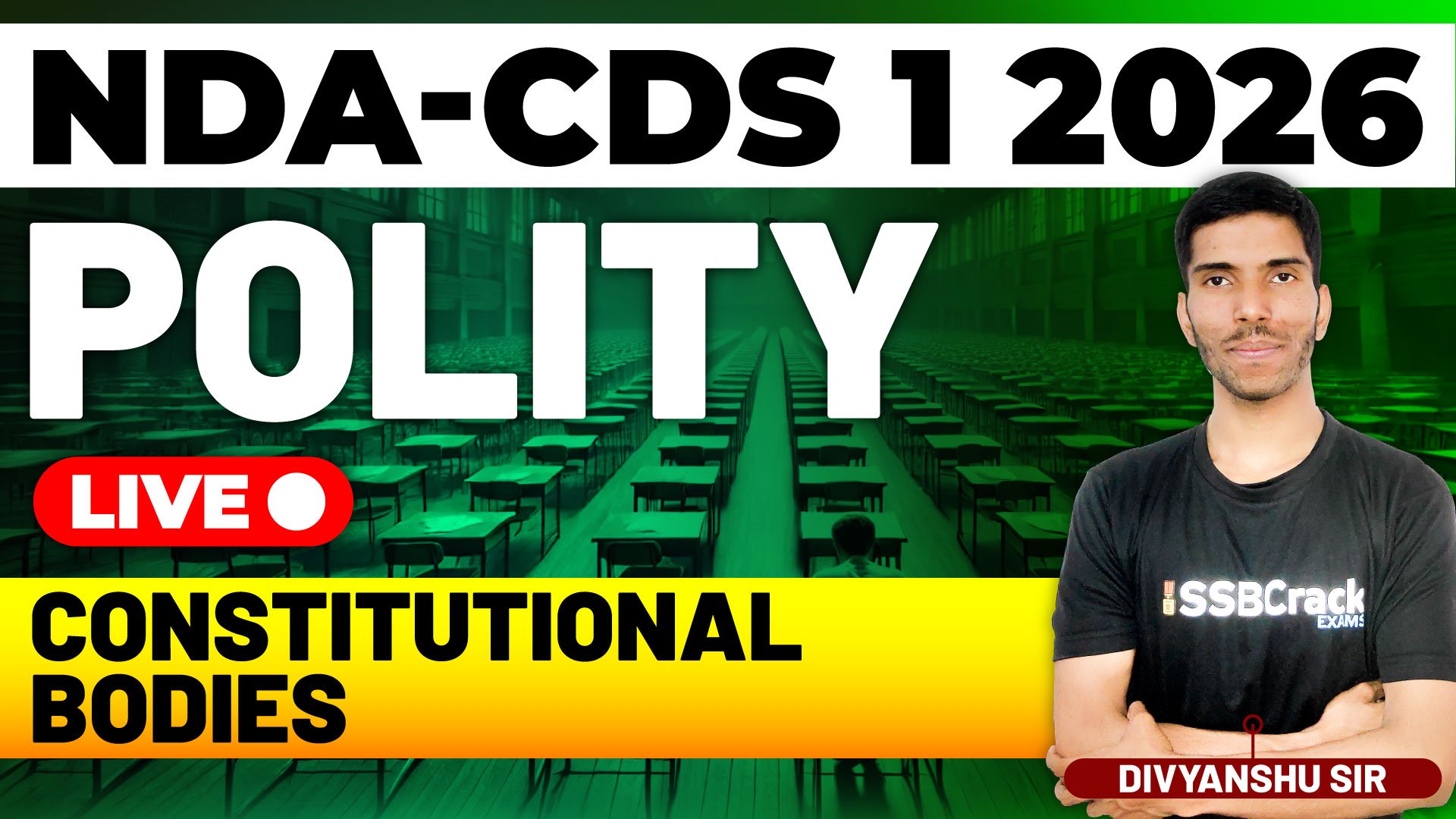Understanding Constitutional Bodies is an essential part of Indian Polity and a key topic for aspirants preparing for the NDA and CDS 2026 examinations. These bodies are established directly by the Constitution of India and play a vital role in maintaining democratic governance, ensuring checks and balances, and upholding the rule of law.
NDA & CDS 1 2026 Exam Polity – Constitutional Bodies
🏛️ What Are Constitutional Bodies?
Constitutional Bodies are institutions that derive their authority and powers from the Constitution of India itself. Their composition, powers, and functions are defined within specific articles of the Constitution, meaning they cannot be abolished or altered easily — only a constitutional amendment can change their structure or powers.
📘 List of Major Constitutional Bodies of India
1. Election Commission of India (ECI)
- Articles: 324 to 329
- Established: 1950
- Composition: Chief Election Commissioner (CEC) and two Election Commissioners.
- Function: Conducts free and fair elections for Parliament, State Legislatures, and the offices of the President and Vice President.
- Headquarters: New Delhi
2. Union Public Service Commission (UPSC)
- Articles: 315 to 323
- Function: Conducts examinations for recruitment to All India Services and Central Services, including NDA, CDS, and Civil Services.
- Chairperson & Members: Appointed by the President of India.
- Headquarters: Dholpur House, New Delhi
3. Finance Commission
- Article: 280
- Constitutional Mandate: Recommends the distribution of financial resources between the Centre and the States.
- Appointed By: The President every five years.
- Current Commission: 16th Finance Commission (2025–2030)
4. Comptroller and Auditor General of India (CAG)
- Article: 148
- Function: Audits all receipts and expenditure of the Government of India and the States, including government-owned corporations.
- Appointed By: The President of India.
- Reports To: Parliament and State Legislatures.
5. Attorney General of India
- Article: 76
- Function: Chief legal advisor to the Government of India; represents the Union Government in the Supreme Court and other courts.
- Appointed By: The President of India.
- Term: Holds office during the pleasure of the President.
6. Advocate General of the State
- Article: 165
- Function: Legal advisor to the State Government and represents the state in courts.
- Appointed By: Governor of the respective state.
7. Election Commission of State
- Article: 243K
- Function: Conducts elections to the Panchayati Raj institutions and municipalities.
- Headed By: State Election Commissioner appointed by the Governor.
8. National Commission for Scheduled Castes (NCSC)
- Article: 338
- Function: Safeguards the rights and interests of Scheduled Castes; investigates and monitors matters relating to their welfare.
9. National Commission for Scheduled Tribes (NCST)
- Article: 338A
- Function: Protects the rights of Scheduled Tribes and advises on their socio-economic development.
10. Special Officer for Linguistic Minorities
- Article: 350B
- Function: Investigates matters relating to linguistic minorities and ensures protection of their rights.
11. Goods and Services Tax (GST) Council
- Article: 279A
- Function: Makes recommendations on issues related to GST such as tax rates, exemptions, and revenue sharing between the Centre and States.
- Chairperson: Union Finance Minister.
📚 Importance of Constitutional Bodies
- Maintain Democratic Framework: Ensure accountability and transparency in governance.
- Uphold Constitutional Principles: Safeguard the fundamental rights and directive principles.
- Check Executive Power: Function as independent entities to prevent misuse of authority.
- Promote Social Justice: Bodies like NCSC and NCST work for the upliftment of marginalized communities.
🧠 Key Takeaways for NDA & CDS Aspirants
- Remember the articles related to each Constitutional Body.
- Know the composition, functions, and appointment process.
- Focus on the independence and autonomy of these bodies, as questions in UPSC and NDA exams often test conceptual understanding.







